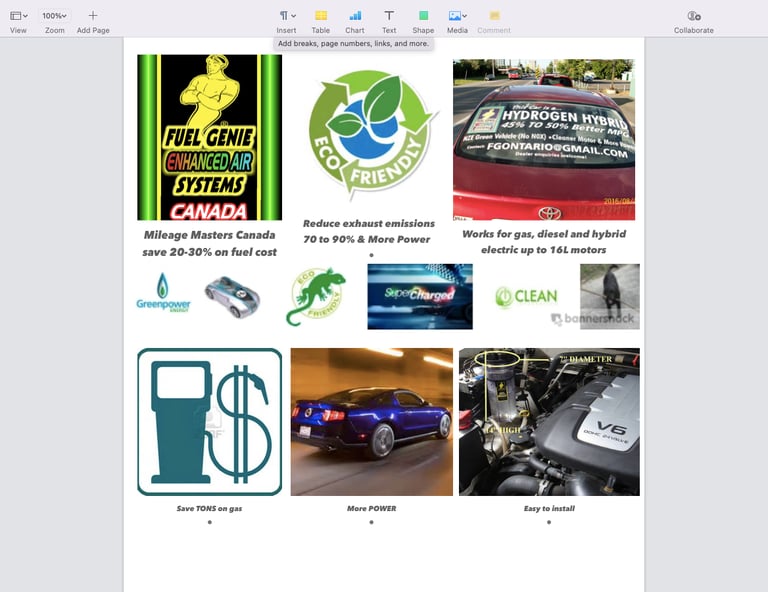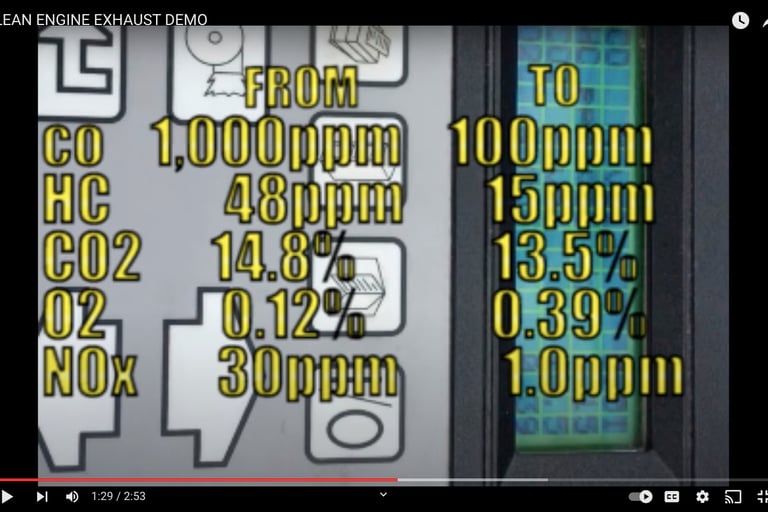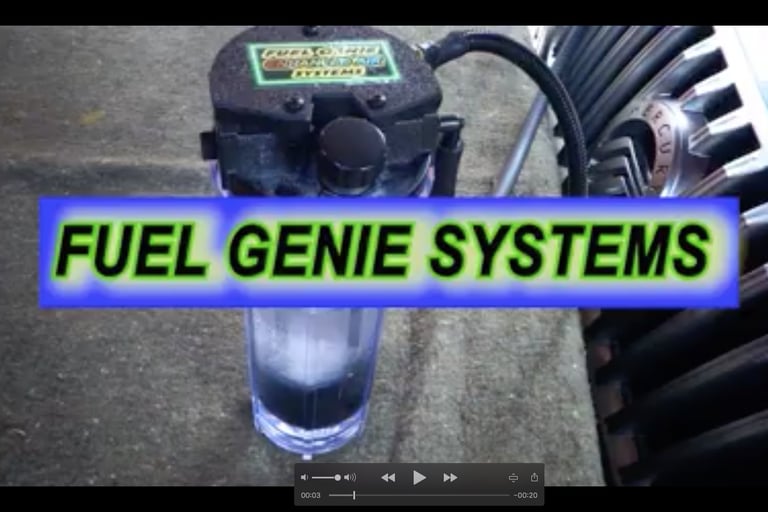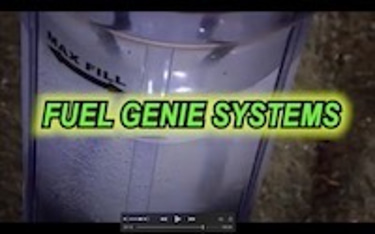How a Hydrogen car generator can save on gas
Our hydrogen car generator. Save BIG TIME on Gas. Our hydrogen "injection" kit save 20 to 30% on gas. Titanium fuel cell/core, adjustable gas levels. LED display, -20C freeze. Installs: 45 minutes.
6/14/20248 min read


Hydrogen Car Generator
Hydrogen car generators represent a significant advancement in automotive technology, offering a promising solution for reducing fuel costs and lowering emissions. These hho generators work by converting hydrogen gas into electrical energy, which can then be used to power a vehicle's engine. This process, known as hydrogen fuel cell technology, has gained considerable attention from both the automotive industry and environmental advocates due to its potential to revolutionize vehicle efficiency and sustainability.
At its core, a hydrogen car generator consists of a fuel cell that combines hydrogen with oxygen from the air to produce electricity, heat, and water. The generated electricity powers the vehicle's motor, providing a cleaner and more efficient alternative to traditional internal combustion engines. Unlike conventional engines that rely on fossil fuels, hydrogen car generators emit only water vapor, significantly reducing the carbon footprint of vehicles.
The growing interest in hydrogen technology is driven by the increasing need to address climate change and the rising costs associated with conventional fuels. Hydrogen is an abundant and renewable resource that can be produced from various sources, including water through electrolysis and natural gas. This versatility makes hydrogen an attractive option for sustainable energy solutions. Moreover, advancements in hydrogen storage and distribution are making it more feasible for widespread adoption in the automotive sector.
As we delve further into the specifics of hydrogen car generators, it becomes clear that their potential benefits extend beyond mere fuel savings and emission reductions. They also offer the promise of enhanced energy security by reducing dependence on imported oil and fostering the development of a robust hydrogen economy. This introduction sets the stage for a comprehensive exploration of how hydrogen car generators can be a game-changer in the quest for more sustainable transportation solutions.
Understanding the Fuel Genie Hydrogen Fuel Cell Injection Kit
The Fuel Genie hydrogen fuel cell injection kit represents a significant advancement in automotive technology aimed at enhancing fuel efficiency and reducing emissions. This innovative kit is designed to seamlessly integrate with a vehicle's existing engine system, utilizing the natural motor vacuum to inject hydrogen into the engine's combustion chamber. By combining hydrogen with traditional fuels, such as gasoline or diesel, the kit helps optimize the combustion process, leading to improved fuel economy and lower emission levels.
At its core, the Fuel Genie kit comprises several key components, including a hydrogen generator, control unit, and injection system. The hydrogen generator produces hydrogen gas through an electrolysis process, which is then directed to the control unit. The control unit precisely manages the flow of hydrogen into the engine, ensuring optimal mixing with the traditional fuel. This harmonious integration allows for a more complete and efficient combustion process, reducing the amount of unburned fuel and harmful emissions released into the atmosphere.
One of the standout features of the Fuel Genie hydrogen fuel cell injection kit is its user-friendly installation process. Unlike other aftermarket modifications that may require extensive retrofitting, the Fuel Genie kit is designed for ease of use. The entire installation can be completed in approximately 45 minutes, making it accessible to a wide range of vehicle owners. The straightforward setup involves connecting the hydrogen generator to the vehicle's battery, attaching the injection system to the engine's intake manifold, and configuring the control unit. This simplicity ensures that the kit can be installed without the need for specialized tools or advanced mechanical skills.
The Fuel Genie hydrogen fuel cell injection kit offers a practical solution for drivers looking to enhance their vehicle's performance while also contributing to environmental sustainability. By integrating hydrogen into the combustion process, the kit not only improves fuel efficiency but also significantly reduces the emission of harmful pollutants. This makes it an attractive option for both individual consumers and fleet operators aiming to lower their operational costs and environmental impact.
One of the primary economic benefits of hydrogen car generators is their ability to significantly reduce fuel costs. By supplementing your vehicle's fuel with hydrogen, the combustion process becomes more efficient. This increased efficiency can lead to fuel savings of approximately 20 to 30 percent. The mechanism behind this is fairly straightforward: when hydrogen is introduced into the combustion chamber, it helps the primary fuel, whether it's gasoline or diesel, burn more completely. This improved combustion means that more of the fuel's energy is converted into power, rather than being wasted as heat or unburned fuel.
To put this into perspective, consider a vehicle that typically consumes 10 liters of gasoline per 100 kilometers. With a hydrogen generator, the same vehicle might only use 7 to 8 liters for the same distance, translating to a significant reduction in fuel expenses over time. For instance, if gasoline costs $1.20 per liter, a driver could save between $2.40 and $3.60 per 100 kilometers. Over the course of a year, assuming an average driving distance of 15,000 kilometers, these savings could amount to between $360 and $540, depending on driving conditions and fuel prices.
Beyond the immediate savings at the pump, the long-term financial benefits of using a hydrogen car generator is also noteworthy. Reduced fuel consumption means less wear and tear on the engine, potentially lowering maintenance costs and extending the vehicle's lifespan. Additionally, as fuel prices continue to rise, the cost savings associated with hydrogen supplementation will only become more pronounced.
Moreover, the initial investment in a hydrogen generator can be recouped relatively quickly through these fuel savings. Many hydrogen generator systems are designed to be durable and low-maintenance, making them a cost-effective addition to any vehicle. As such, car owners can look forward to long-term financial benefits and a more sustainable driving experience.
Environmental Impact: Reducing Emissions by Up to 80%
The pressing need to mitigate environmental degradation has pushed the automotive industry towards innovative solutions, with hydrogen car generators emerging as a promising alternative. Hydrogen, as a clean energy source, significantly reduces vehicular emissions, contributing to a healthier environment. Studies show that hydrogen-powered vehicles can cut emissions of harmful pollutants such as carbon monoxide (CO), hydrocarbons (HC), and nitrogen oxides (NOx) by up to 80% compared to conventional gasoline engines.
Carbon monoxide is a notorious air pollutant that poses severe health risks, including respiratory issues and cardiovascular diseases. Hydrogen car generators effectively minimize CO emissions due to their cleaner combustion process. Similarly, hydrocarbons, which contribute to ground-level ozone and smog, are greatly reduced, enhancing air quality and reducing respiratory ailments in urban areas.
Nitrogen oxides, another significant pollutant from internal combustion engines, are known to cause acid rain and contribute to the formation of fine particulate matter, which has been linked to various health problems. Hydrogen combustion produces water vapor and minimal NOx, thereby mitigating these environmental and health risks. Research conducted by the U.S. Department of Energy indicates that hydrogen fuel cell vehicles emit only water and warm air, highlighting their environmental benefits.
The broader adoption of hydrogen car generators could lead to a substantial decrease in greenhouse gas emissions. According to a study by the International Energy Agency (IEA), widespread use of hydrogen in transport could reduce global CO2 emissions by up to 6 gigatons annually by 2050. This reduction is crucial for meeting international climate goals and mitigating the adverse effects of climate change.
In conclusion, the environmental benefits of hydrogen car generators are profound. By significantly reducing emissions of carbon monoxide, hydrocarbons, and nitrogen oxides, these vehicles present a viable pathway to cleaner air and a healthier planet. As technological advancements continue and infrastructure develops, hydrogen-powered transportation stands to play a pivotal role in achieving global environmental sustainability.
Installation Process and User Experience
One of the most compelling aspects of the Fuel Genie hydrogen fuel cell injection kit is its straightforward installation process. Designed with user-friendliness in mind, the kit can be installed without the need for any retrofitting or special tools. Typically, the installation can be completed within an hour by following the step-by-step instructions provided with the kit. The Fuel Genie package includes all necessary components, such as the hydrogen generator, control unit, and connecting cables, ensuring that users have everything they need to get started.
The first step in the installation process involves identifying a suitable location under the hood to mount the hydrogen generator. Once secured, the device can be connected to the vehicle's battery and engine manifold using the supplied cables and clamps. The control unit, which manages the hydrogen flow, is then installed inside the vehicle's cabin. This unit is equipped with a user-friendly interface, allowing drivers to monitor the system's performance and make any necessary adjustments easily.
Many users have reported positive experiences with the Fuel Genie kit, highlighting its quick installation and immediate benefits. For instance, John D., a user from Texas, shared that he was able to install the kit on his own in under an hour and noticed a significant improvement in fuel efficiency during his daily commute. Another user, Sarah L. from California, mentioned that the installation process was straightforward, even for someone with minimal mechanical skills. She appreciated the detailed instructions and found the control unit intuitive and easy to use.
Real-world testimonials like these underscore the practical benefits of the Fuel Genie hydrogen fuel cell injection kit. Users consistently report not only improved fuel economy but also smoother engine performance and reduced emissions. The positive feedback from diverse users reinforces the kit's reputation as an effective and user-friendly solution for those looking to save on fuel costs and contribute to a cleaner environment.
Future of Hydrogen Fuel Cell Technology in Automotive Industry
The future of hydrogen fuel cell technology in the automotive industry appears promising as research and development continue to advance at a rapid pace. With a growing focus on sustainable transportation solutions, hydrogen fuel cells are emerging as a pivotal technology. Researchers are exploring innovative methods to enhance the efficiency, durability, and affordability of hydrogen fuel cells, paving the way for widespread adoption.
One of the primary areas of ongoing research is improving the energy density of hydrogen storage systems. Current methods, such as compressed hydrogen tanks, are effective but come with limitations in terms of storage capacity and safety. Advances in materials science are expected to yield new storage solutions that can hold more hydrogen at safer pressures, thereby extending the range of hydrogen-powered vehicles and making them more practical for everyday use.
Moreover, the development of green hydrogen production methods is crucial for the sustainability of this technology. Electrolysis, which uses renewable energy sources to split water into hydrogen and oxygen, is gaining traction. As renewable energy technologies such as solar and wind become more cost-effective, the production of green hydrogen is likely to scale up, leading to a more sustainable hydrogen supply chain.
Hydrogen fuel cells also play a significant role in the broader context of reducing greenhouse gas emissions. As the automotive industry shifts towards zero-emission vehicles, hydrogen-powered cars offer a viable complement to battery electric vehicles (BEVs). This diversification ensures that a range of sustainable options is available to meet different needs and driving conditions, ultimately contributing to a more resilient and environmentally friendly transportation ecosystem.
The potential market growth for hydrogen fuel cell vehicles is substantial. Industry analysts project that as infrastructure develops and production costs decrease, consumer adoption will rise. Innovative products like the Fuel Genie kit, which aims to enhance fuel efficiency and reduce emissions, could become commonplace, further integrating hydrogen technology into the mainstream automotive market.
Conclusion
In conclusion, the future of hydrogen fuel cell technology in the automotive industry holds considerable promise. With ongoing advancements in research, production, and infrastructure, hydrogen-powered vehicles are poised to become an integral part of the transition to sustainable transportation.






